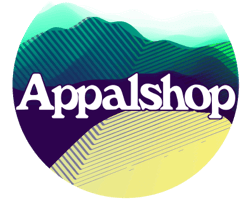No institution has done more to enhance the self-awareness and self-respect of eastern kentucky and all of Appalachia.
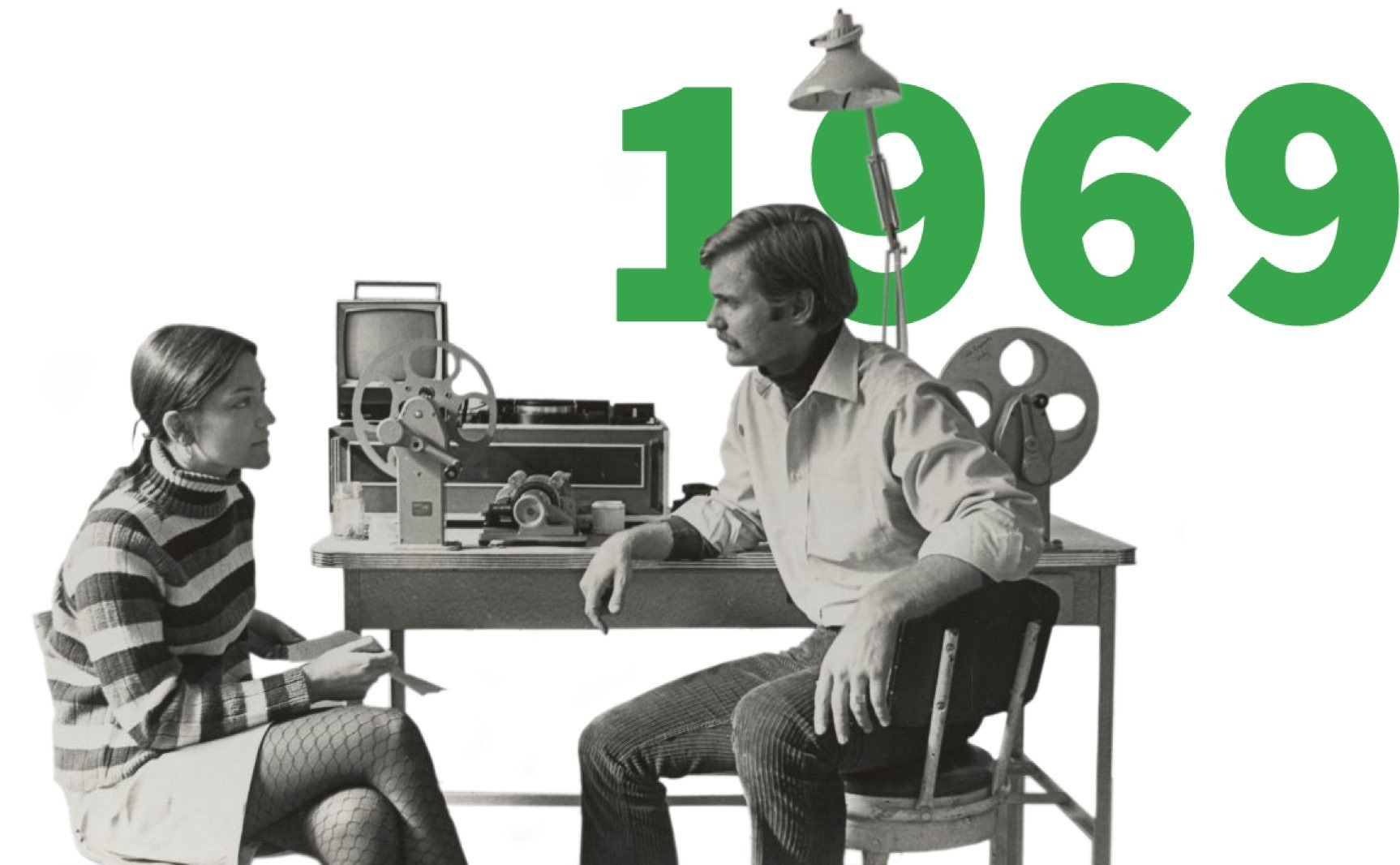
When we got our start in the fall of 1969, there was no Appalshop exactly — just a community film workshop.
Its Goal Was Simple:
Teach young Appalachians to operate 16 mm film equipment.
Boost the economy through vocational training.
Offer a counternarrative to the one that made Eastern Kentucky the poster child for American poverty.
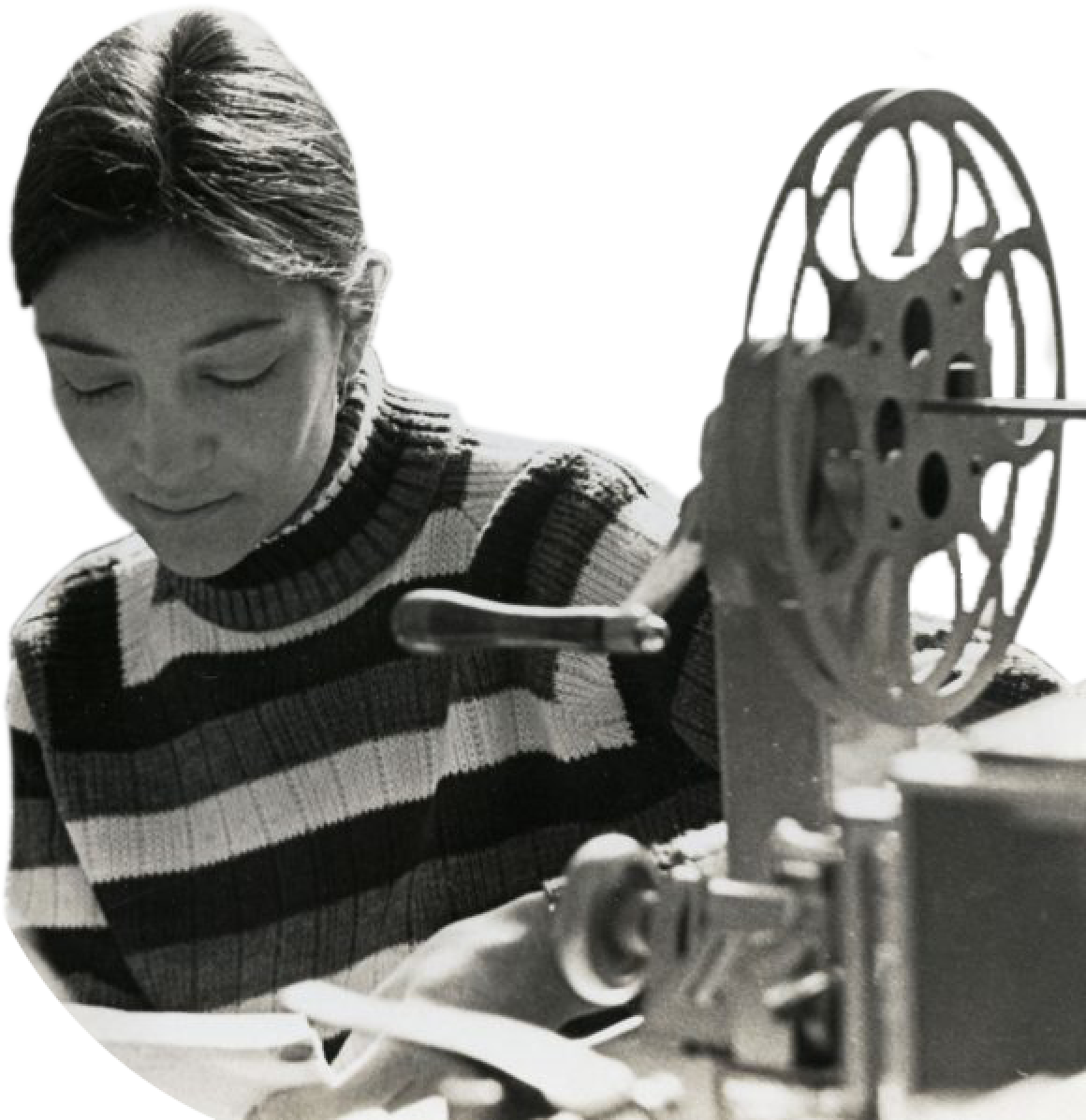
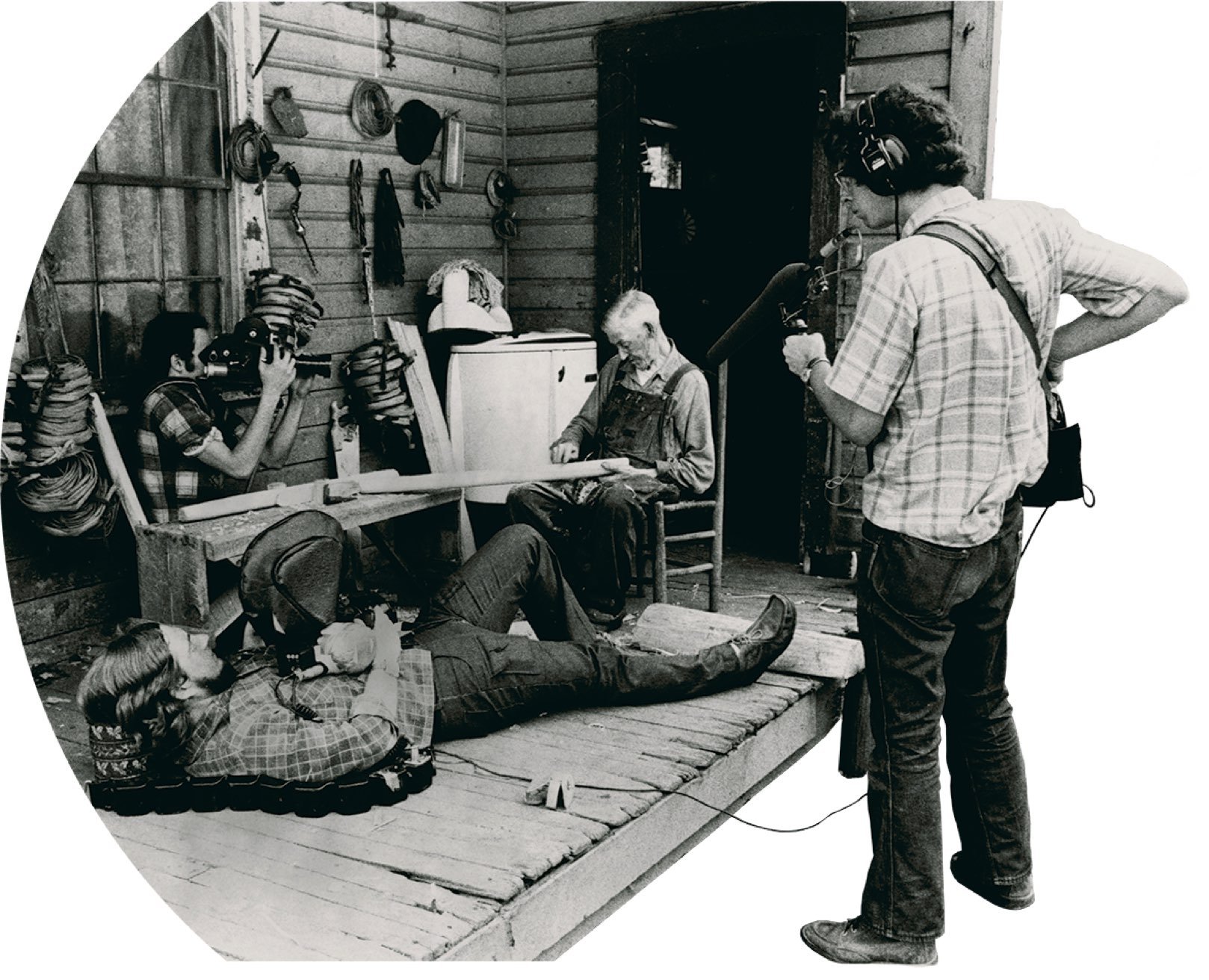 It was a runaway success!
It was a runaway success!
Young people in Whitesburg learned how to operate cameras, audio recorders, and a “portable video machine” from an instructor who was still quite young himself. Bill Richardson came to Eastern Kentucky when he was fresh out of graduate school at Yale, where he’d written a thesis heralding the potential of video equipment to be “an amazing recorder of community.” He was right. The films that young people made in that early workshop paved the way for its participants’ careers as professional filmmakers — and for the organization that came to be known as Appalshop.
1970s
By 1975, the film-training workshop had twenty full-time employees and annual funding of $1 million. Grant money was coming in and so were Appalachian young people, making art, music, theater, and other creative work far beyond the scope of the original film workshop that had started it all in 1969.
I came down to visit and saw a really early version of [Appalshop's Roadside Theater's] Red Fox, Second Hanging with my friend Marianne. In the middle of it I was weeping. Neither one of us had seen theater that was about us or our people. It was overwhelming. You wanted to be part of it. It was affirming in every way.
Some notable new programs that started during this decade:
The Mountain Photography Workshop
Appalshop's Roadside Theater
A literary journal called Mountain Review
Appalshop's record label, June Appal Recordings
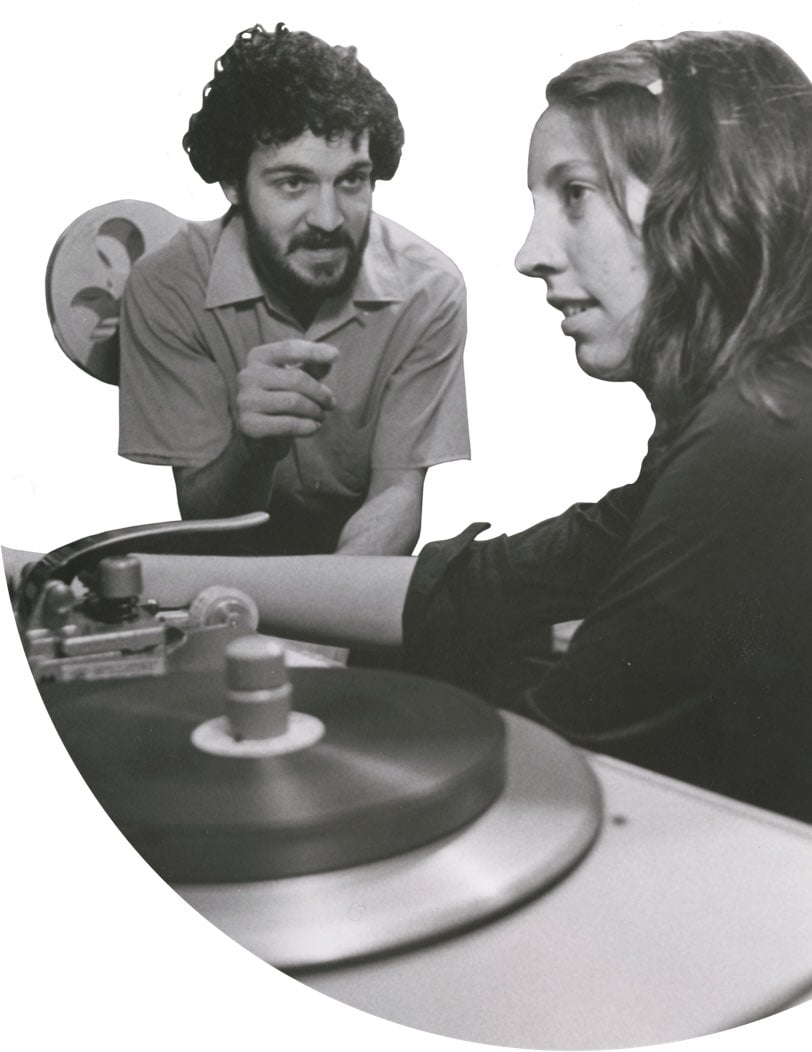
and in 1979, Headwaters Television.
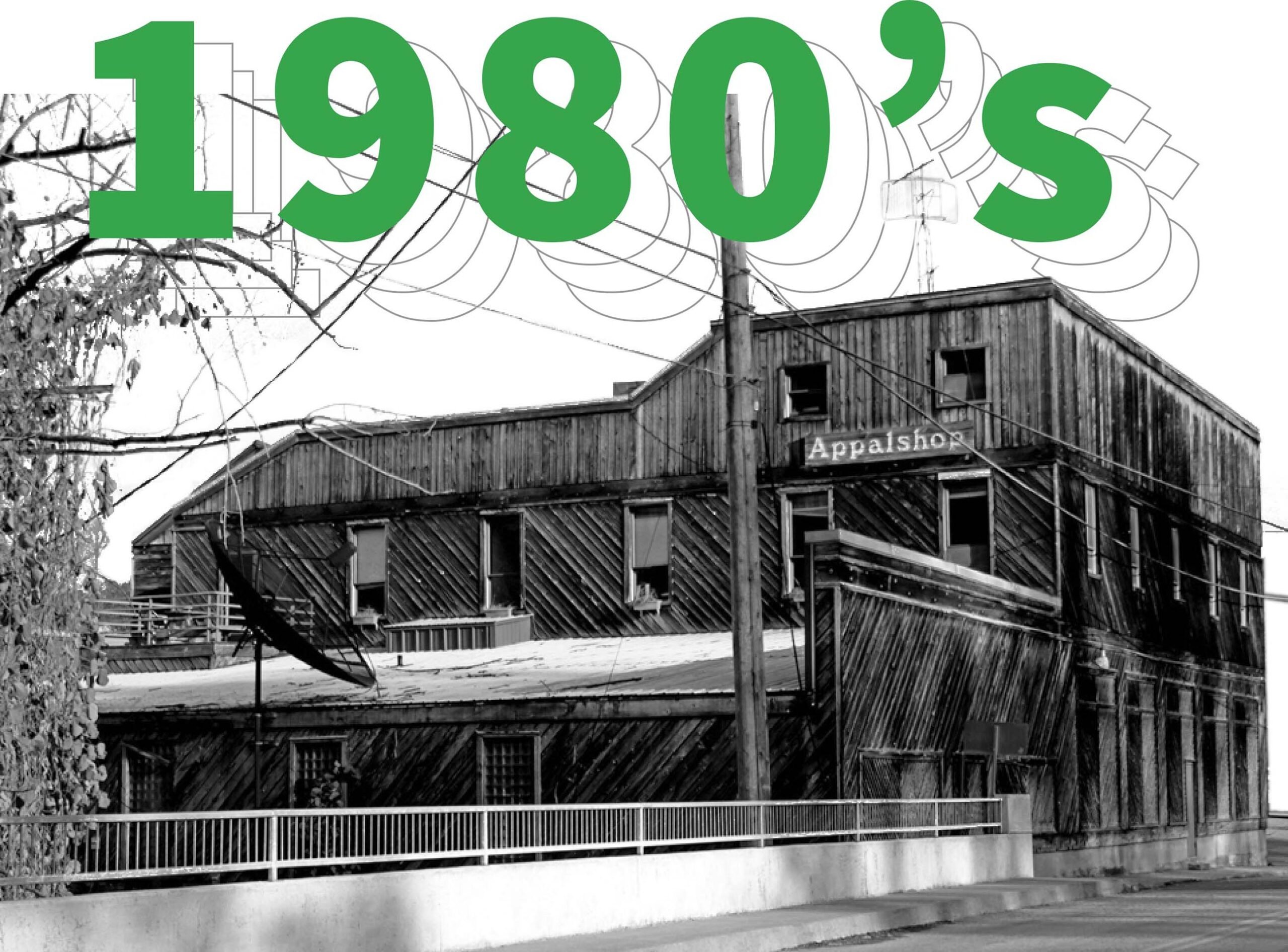
We moved from an office on Main Street to a former bottling plant in Whitesburg, Kentucky in 1982 after three years of renovations. As Appalshop’s Herb E. Smith recalls:
Buying the building in 1979 was a huge step. The president of the biggest bank in town was looking around, and he said, 'Wow, this is really nice!' He couldn't believe it. They didn't know where the money came from. They didn't even know there was money out there like that. Put a million dollars into one of the biggest buildings in town, and he says, 'Damn, they're gonna be here permanently. It's not the circus coming through town.' For a lot of people it was the building that made people think we meant it.
Some notable new programs that started during this decade:
Appalshop's radio station, WMMT 88.7 FM
Appalshop's Appalachian Media Institute for young filmmakers
Appalshop's annual music festival, Seedtime on the Cumberland
The American Festival Project
1990s & 2000s
By the end of the 1990s, Appalshop’s staff had more than doubled and its annual budget had increased as much as 400 percent. Several NEA Challenge Grants in the late 1980s allowed Appalshop staff more independence to access seed funding for new project development; Roadside Theater alone toured to 43 states and Europe.
That was the thing about Appalshop: its independence, The city fathers couldn't control us. Nobody could.
Some notable new programs that started during this decade:
Appalshop's Archive
Letcher County Culture Hub


1990s & 2000s
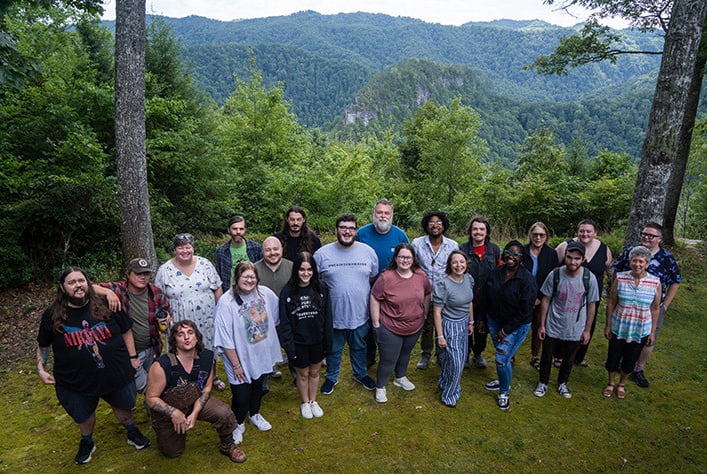
Today Appalshop operates a radio station, a record label, an archive, a filmmaking institute, a reproductive justice program, a community media program, and a frankly dizzying array of other initiatives, all from beautiful Letcher County, Kentucky.
In 2019 alone, we installed the largest net-metered renewable energy system in the region and helped our partners install their own. We participated in art and cultural exchanges that took us to the Bronx and to Zuni Pueblo. Here in Eastern Kentucky, we installed a Letcher County walking trail, supported a music education camp for girls and gender nonconforming teens, and created a community fund for small businesses like Black Sheep Brick Oven Bakery.
And that’s just a fraction of what we’re up to. For the last several years, Appalshop has been intentionally articulating our cultural work as community economic development work — in some ways, coming full circle to our founding in 1969.
